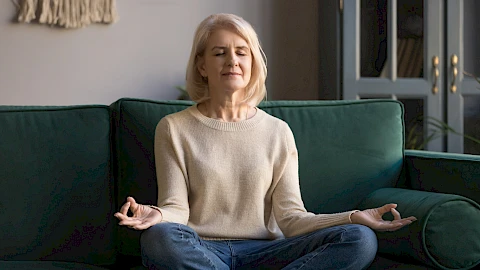
May is Anxiety Awareness Month. It's an excellent time to raise awareness about this prevalent mental health concern that affects individuals of all ages, including seniors. Anxiety is more than just feeling stressed or worried. Anxiety is a persistent feeling that can interfere with daily activities and overall quality of life. At Senior Helpers Chesterton, we understand the unique challenges and triggers of anxiety in seniors and the importance of managing it effectively. In this blog post, we want to offer some practical coping strategies for seniors dealing with anxiety and emphasize the importance of seeking professional help when needed. Whether you're a senior grappling with anxiety or a loved one seeking ways to provide support, this guide is for you.
What Is Anxiety in Seniors?
Anxiety is an emotion characterized by feelings of tension, worry, and physical changes like increased blood pressure. In seniors, anxiety can often stem from significant life changes such as retirement, loss of loved ones, or declining health. When left unmanaged, anxiety can adversely affect seniors' physical health, disrupt their sleep, or cause a decline in their cognitive function.
What Are Coping Strategies for Anxiety?
If you or a senior loved one have anxiety, there are ways to manage those feelings. Here are a few strategies to try.
Relaxation Techniques
One of the most effective ways to manage anxiety is through relaxation techniques. Deep breathing exercises, for instance, can instill a sense of calm and lower stress levels. This involves inhaling deeply, holding the breath for a few seconds, and then exhaling slowly.
Mindfulness and meditation can be very helpful in managing anxiety. They enable seniors to stay present in the moment, letting worries and anxieties fade into the background.
Physical Activity and Exercise
Regular physical activity is beneficial for mental health. Activities such as walking, gardening, or yoga can promote the production of endorphins—the body's natural mood boosters. They can also distract from worry-filled thoughts, allowing the mind to reset and refresh.
Communication and Social Interaction
Often, opening up about one's feelings can lift the burden of anxiety. Encourage seniors to communicate their fears and concerns with trusted family members and friends. Joining local clubs or partaking in community events can also provide social interaction and emotional support, reducing feelings of isolation, which is a common trigger for anxiety among seniors.
When to Seek Professional Help
While these strategies can help manage anxiety, you should also recognize when professional help is needed. If feelings of anxiety persist, interfere with daily life, or worsen over time, it might be time to seek the assistance of mental health professionals. Therapists, psychologists, and psychiatrists are equipped to help manage and treat anxiety disorders. Sometimes, medication may be prescribed to help control the symptoms of undue anxiety.
Are You Experiencing Anxiety?
Dealing with anxiety can be challenging, but with the right strategies and support system, seniors can navigate these feelings, finding more enjoyment in life's later years. Remember that seeking professional help is not a sign of weakness but a measure of taking control of one's well-being.
If you or a loved one in Valparaiso, Portage, Chesterton, Westville, or Michigan City is grappling with anxiety, contact us. Senior Helpers Chesterton is equipped to provide the assistance and resources needed to boost your mental health. Let's make Anxiety Awareness Month a turning point in your anxiety management and overall wellness journey.